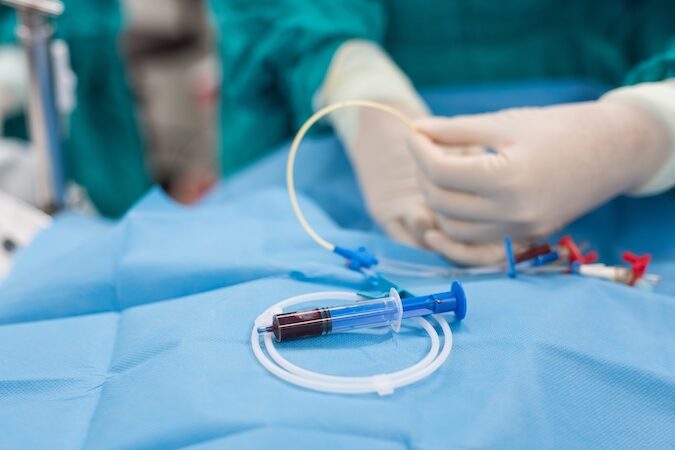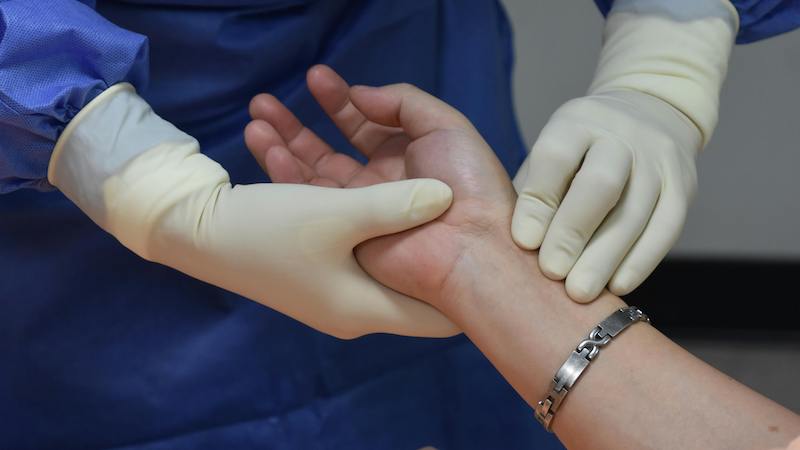If you or a loved one suffer from a heart condition called atrial fibrillation (AF), you may have come across the term “ablation” recently.
It’s a new treatment option for AF that has been generating plenty of excitement among cardiologists, not least because AF is such a common problem – by our early 80s, about one in 10 of us is likely to suffer from the condition.
While traditional AF treatments have focused on drugs, ablation is a keyhole procedure that aims to tackle the problem at source: the upper part of the heart. You can find out more about it in this excellent new video by the New England Journal of Medicine (though please note that, while open to general viewers, it’s aimed at healthcare professionals). In the meantime, here’s a digestible summary of this important new treatment – and why we’re pleased to provide it here in Dublin.
What is AF?
Atrial fibrillation is caused by faulty electrical signals in the top (atrial) chambers of the heart – the term literally means “a quivering in the upper chambers”. To maintain normal rhythm, our hearts need an orderly flow of electrical impulses running into the atria and down to the lower ventricles, which pump blood around the body. In AF, the impulses become rapid and disorganised. It’s a bit like having a tiny “electrical storm” in the heart.
What problems does AF cause?
Initially, an irregular heartbeat. Most AF heartbeats are too fast, typically 140-180 beats per minute rather than 60-100. This can – though doesn’t always – cause some unpleasant symptoms, ranging from palpitation to dizziness and chest pains. Unfortunately, it can also make the heart less efficient at pumping. This can lead to blood stagnation, which raises the potential for clots to form. Some studies have found that AF sufferers have a five- to six-fold increased risk of stroke.
How is it traditionally treated?
Treatment for AF really depends on the type you have (is it occasional, persistent or constant?) and how much it raises your risk of other heart complications. But, in essence, the main treatments involve drugs. We have medicines to prevent blood stagnation (“anticoagulants”), stop excessive ventricular rates (“rate control”) and control heart rhythm (“antiarrhythmic drugs”).
What are the drawbacks?
The drugs we use for AF are effective for most patients. But, like all medicines, they also have limitations. Some, such as warfarin, interact with quite a wide range of other medicines, or mean you need to be careful with your diet while taking them. They usually need to be taken every day. And they often involve (monthly) regular blood tests. And, as with all medicines, they don’t work for everybody.
So how does ablation work?
Ablation targets the source of the faulty electrics, which is usually – though not always – around the pulmonary veins (these are the four veins that carry blood from your lungs to your heart). By threading a tiny, flexible tube called a catheter up to this area, we can map the electrical impulses inside the heart to see where the faulty signals are coming from. Using a second catheter, we can then apply electricity or a cold temperature to the local tissues. This is called “ablation”, and it electrically isolates the area, preventing the bad impulses from travelling any further.
Why is it so effective?
If the ablation works successfully, it has a greater chance of preventing AF from recurring than other traditional methods, and this can lead to a major improvement in patient’s quality of life. And the success rates are good – about 85% in patients who are younger or have intermittent AF, and around 60-70% for people who are older or suffer from persistent AF. When ablation doesn’t work, it’s usually because the tissues heal across the areas we’ve treated, breaking the isolation “fence”. But in these cases, we can normally do a repeat procedure to “touch up” and re-isolate the area. After a successful ablation, it may even be possible to stop taking the anticoagulation drugs – though this is something we would need to discuss with you carefully before recommending it.
Ultimately, catheter ablation is a powerful new string to our bow when it comes to reducing risk and improving life quality for AF sufferers. That’s great news, and we’ve been very encouraged to see the profound impact it’s having on patients here in Ireland.
Would you like to know more about ablation and whether it might be a suitable treatment for your own AF? Please get in touch and we’ll be really happy to discuss the options with you. You can call direct on 01 690 8350 or book an appointment by emailing us at [email protected]. You can also get more detail about the procedure in the Catheter Ablation section of our website.






